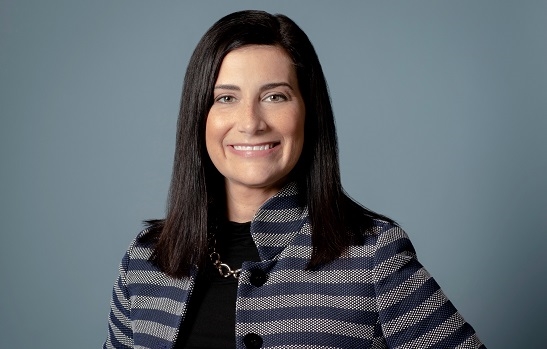Part One: CME's Winkler sees Google migration at 'exponential point' for data
CME Group has said it is already deriving real-world benefits including data cost-savings and faster time-to-market from its historic tie-up with Google just two years after the US group signed its landmark deal with the tech giant.
The Chicago-based firm agreed in November 2021 a comprehensive ten year partnership that included the migration of CME's vast trading data resources, its matching engines and clearing business to Google Cloud. Speaking to Global Investor, chief commercial officer Julie Winkler says the deal was borne out of a shared desire to realise the full potential of the technology in the financial services sector.
“I think what was interesting to Google about our business was the fact that not only did we have this large amount of data, but the fact that we have to handle that data - actually process it and make the matching engine and the trading work – in a low latency way,” Winkler says. “That’s really where the secret sauce will be in what we are working on with them.
“That process has really started to accelerate, even more so in the last couple of months, so we are really at that exponential point in the curve where the speed at which we are able to move the data, integrate the applications and then build on top of that is increasing.”
Top of the agenda is migrating data onto the Google Cloud Platform (GCP) in a way that enables the further development of the offering.
“It is an exciting time,” she adds. “We are just about at that two-year anniversary, and it continues to be highly collaborative in the way we work together. For our part a lot of the foundational work was done particularly in that first year and a half, getting some of the core data migrated into GCP.
“Obviously you want to be very thoughtful about that as you build out a new unified data platform. You want to ensure it has the architecture that will help you scale, with the ability to accommodate a lot of different types of data.”
Google, which presented CME Group with a customer award at its Google Cloud Next Conference in August, said the move to its Pub/Sub real-time messaging protocol has reduced the cost of managing data by 90%. The switch also means CME can tap 20 centres worldwide rather than relying its CME’s Illinois access point or a data aggregator.
For its part, the CME has now made available real-time and delayed binary data (10 minute) on GCP, enabled access to data in the JavaScript Object Notation (JSON) format preferred by developers and applied advanced functionality through its Google Analytics hub that allows analysis of data going back to 2014. The CME estimates that, even at this early stage, access to its data services through the new GCP channels has doubled.
“All of that work has put us into position to really move ahead and focus on customer experience,” Winkler says. “There are things that we do internally to best serve our customers that can be developed faster because of the way that we are able to centralise that data at GCP. We can do that in a way that optimises that customer journey, whether that’s better data or optimised machine learning models or just Application Programming Interfaces.”
In practice, that has also meant a shift in internal workflows, and the CME has created product oriented delivery teams (known as pods) to develop those customer solutions.
“We were the first exchange to put market data into the cloud to begin with, and that process had started before our partnership with Google was formalised,” Winkler says. “That migration has helped us to put that data into formats that are easier for developers to use which helps with that acceleration process. Behind the scenes we are migrating our team into agile work pods, again that is focussed on accelerating the speed of bringing new products and data to market.”
Continued on October 11
Found this useful?
Take a complimentary trial of the FOW Marketing Intelligence Platform – the comprehensive source of news and analysis across the buy- and sell- side.
Gain access to:
- A single source of in-depth news, insight and analysis across Asset Management, Securities Finance, Custody, Fund Services and Derivatives
- Our interactive database, optimized to enable you to summarise data and build graphs outlining market activity
- Exclusive whitepapers, supplements and industry analysis curated and published by Futures & Options World
- Breaking news, daily and weekly alerts on the markets most relevant to you



